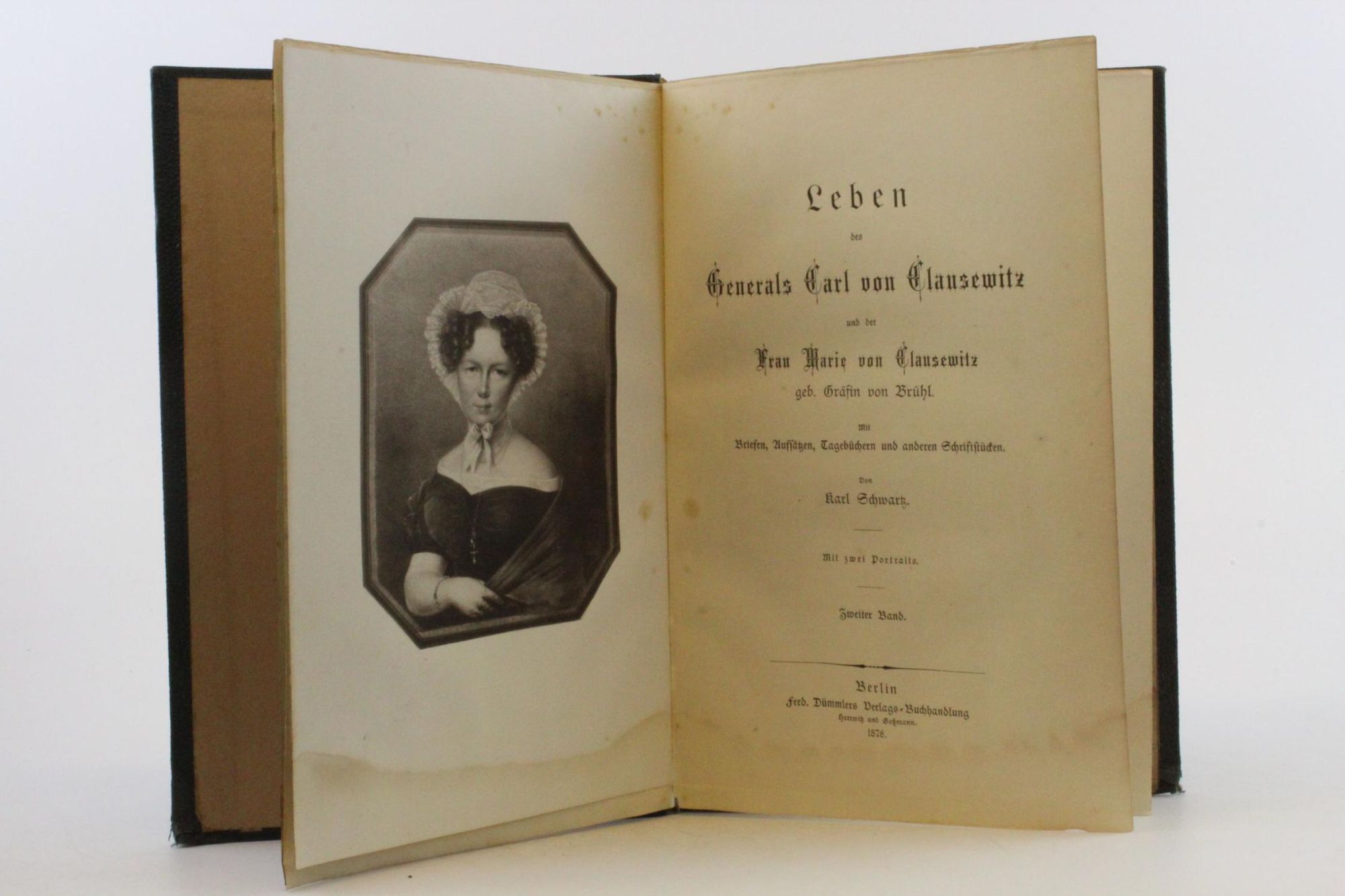Marie von Clausewitz: A Biography of a Wider Experience

Jill S. Russell is a military historian whose interests lie in contemporary security affairs. She has recently submitted her doctoral dissertation on logistics, subsistence and American strategic culture. She has worked as a defence consultant and in the American professional military education system. You can find her writing at Strife Blog, CCLKOW, and on Twitter at @jsargentr.
I have just completed a book review of Vanya Eftimova Bellinger’s biography of Marie von Clausewitz, which you can check out on H-War very soon. For a variety of reasons, I was keen to write this review. First, it was a work of military history by a woman and about a woman. Given how infrequently that happens, it was important to me to interact with the work intellectually and professionally. Second, although not officially a Clausewitzian, my thesis focused on strategic culture and I have worked in academic strategy at regular intervals both in the civilian and military schoolhouses. But the most compelling issue to me was the unshakeable identification with Marie. As I have written elsewhere I was for a long time a military spouse. And so I felt strongly that I would have something particular to offer to the discussion of this biography.
Prior to reading, what I had understood about the book and Marie’s life from advanced notice and Bellinger’s article in the Journal of Military History (which I am happy to note has been selected for the Society for Military History’s Moncado Prize), was that she was a key part of Carl’s work and a keen intellect in her own right. Constrained by the context of her time and culture, she had applied her strength to supporting and sustaining and expanding her husband’s career. As the book makes abundantly clear, she did this with vigour and success. For Marie, this path was her only choice. For me, it was driven by the exigencies of military service in the 1990’s and post 9/11 context. There was simply too much moving around to make my career a priority. Continuing my academic pursuits fit best in this format, but at many points even this was constrained by the demands of Marine Corps service. And I will note that at those moments I perversely relished the irony that conflict was an obstacle to my work as a military historian.
What I did not expect was quite how much the book would affect me. Reading the letters, her views, the life they shared, I came to realise that I knew Marie. There were portions of this work that I felt personally, that I understood because it had been my life as well. In times of barracks separation and wartime contingency, her experience was little different from mine. I too travelled to the camps and lived in the garrison outposts. We spent as much time apart as together. I wrote, if not letters, endless emails. As a historian of his endeavours, we discussed his work. And if not by social convention but by the reality of contemporary service, I also understood something of what it meant for her to subordinate her ambition to the martial life of another. I suspect that many military wives could read this book and feel the same.
Understanding this, as military historians and military personnel read this book, I feel compelled to counsel them not to look beyond Marie to Carl and the strategic lessons. In fact, forget Carl. There is more than enough already written about the man and his work. There is precious little, by contrast, on the military wife. Take this opportunity to consider Marie’s life, to understand that experience and what it reflects about the uncounted, often unheard masses of spouses who form a critical bulwark of defence. While much lip service is paid to the family, a real reckoning of their sacrifices, burdens, and efforts does not exist. Marie’s life may seem unique for having been married to one of the great figures of military history and for her contribution to his work. But in many respects she could be any wife of a military officer in the Western tradition of the last several centuries.
The history of the military wife is long – and poignantly coming to an end as the new era of the more broadly conceived military spouse emerges. As more women and openly gay men serve, husbands will begin to fill the ranks. It will be interesting to see how this fundamental change alters the landscape of military service in society. In many respects their experience will vary little from their feminine forebears, though I daresay it will be understood differently by men, as spousal subordination has traditionally been a gendered phenomenon. Fascinating times ahead, indeed, and I look forward to the day the biography of Mr. General Jane Doe is published.
